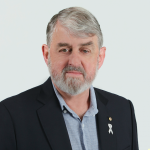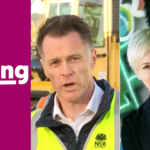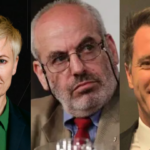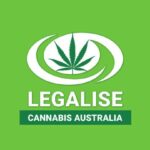Ending Global Cannabis Prohibition Is Inevitable, According to Sydney Uni Symposium
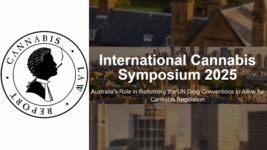
Australian Greens Senator David Shoebridge suggested an “ethical discussion” that should be had in this country involves the ongoing criminalisation of the personal possession of drugs, and in particular, the cannabis plant, at a symposium held at Sydney University last Friday.
The politician added that “the sheer amount of damage that happens amongst largely poor people – First Nations people – because of the criminalisation of the personal possession of drugs is obscene”.
Sydney University academic fellow Ben Mostyn had ascertained via a pop quiz at the top of the 21 November 2025 cannabis symposium held on Gadigal land at the institution where he lectures on the United Nations drug conventions, that most of the cannabis reformists at the event were chiefly concerned with the issue of ongoing aggressive cannabis policing and related racial injustices.
Publisher of the Cannabis Law Report, Sean Hocking was hosting the Sydney uni symposium entitled Australia’s Role in Reforming the UN Drug Conventions to Allow Cannabis Regulation, which was the first of a number of satellite meetings to be held ahead of a June 2026 International Cannabis Symposium in Cape Town, which aims to move toward establishing global cannabis standards.
The event was co-hosted by ICQSA (International Cannabis Quality Standards Association) executive director Atiyyah Ferouz, who explained that the focus of the event involved the burgeoning global cannabis market, the disparate and broken cannabis laws across multiple nations, the UN conventions governing drug prohibition worldwide and the need to produce international standards.
Broken cannabis laws, along with drug prohibition in general, were repeatedly raised as being in crisis during the meet, as academics, lawyers and politicians all agreed that a regulated adult cannabis market should be established locally to stop the primary harms associated with the plant, which are criminal justice-related, as well as to uphold basic rights around cannabis consumption.
Prohibition serves police
NSW Greens MLC Cate Faehrmann told those gathered at the Sydney University Law School on Friday, that the cannabis/drug law reform situation in NSW is “very ugly”, due to the fact that the NSW Minns Labor government promised serious drug law reform if it took out the 2023 state election, but afterwards it then pulled back on this at the first sign of Murdoch press disapproval.
“Ugly is exactly what describes the Minns government approach at this point. There were certainly people that put so much hope into getting some indication on shifting on something substantial in relation to the way in which drugs are policed regularly,” Faehrmann said, as she continued with concerns around the heavy policing of and potential prosecution over the relatively innocuous plant.
“Labor talked up a big game in opposition in terms of the drug summit,” the NSW Greens lawmaker added. “Every time they were asked anything in terms of their drug policy, they said, ‘It’s okay. We are going to put it to a drug summit. We will get all of the experts in the room and let them decide, and we will look at their recommendations.’”
NSW Labor held the groundbreaking 1999 NSW Drug Summit, so when then opposition leader Chris Minns’ promised such meeting to solve drug issues, it seemed legitimate. But the 2024 NSW Drug Summit was reluctantly staged, and it was then put on in a disjointed manner to hinder its impact. The premier and the health minister even took the key issue, drug decriminalisation, off the agenda.
The late October delivered NSW government response to the 2024 NSW Drug Summit report recommendations was notable in that it rejected all the primary and difficult drug law reforms long sought by the community.
The response further indicated that the government would not end NSW police use of drug dogs and strip searches at music festivals as recommended, because it considers their use is an important “investigative tool” for the NSW Police Force.
This suggests that NSW authorities consider the law criminalising personal drug possession is advantageous and should remain as it serves to allow state law enforcement officers to surveil and search great tracts of the people whilst they are out in public.
“It does raise whether we should fight for decriminalisation because of the massive harm reductions that happen in criminalisation knowing that it might take some of the wind out of the sails of the extreme aggressive policing against cannabis,” Shoebridge underscored.
“This is the kind of ethical discussion that we should be having, because of the sheer amount of damage that happens to largely poor people – First Nations people” – in this country.
An act of civil disobedience
In terms of forging change in this area, veteran Australian drug law reformist Dr Alex Wodak recalled his experience with bucking the system in the mid-1980s, as the HIV/AIDS crisis was about to tip over here, and the then St Vincent’s Hospital medical practitioner became aware that the blood borne virus was about to wreak havoc amongst the local community of people who inject drugs.
“What we were all concerned about, but didn’t speak much about in public, was having a generalised epidemic, that is HIV in more than 1 percent of the high-risk population,” Wodak recalled.
The greatest risk of a more general epidemic, according to the doctor, was for the virus to spread amongst people who inject drugs and from there that HIV spread out into the wider community, which was happening in a dozen countries across the planet. And the hospital left it up to Wodak to sort out this matter because of his area of expertise.
“I realised fairly soon that we had to start handing out clean needles and syringes – sterile injecting equipment – and take used equipment back. We had to expand and liberalise the methadone program, though we had no research to evaluate that,” the doctor continued.
“We had to get the message out about what risks that people who injected drugs were exposed to, and we had to do that using street language not university language.”
Dr Wodak teamed up with a group of his colleagues and the local community of people who injected drugs in 1986, and they set up an illegal needle and syringe shopfront on Gadigal land in Sydney’s inner suburb of Darlinghurst.
The NSW Department of Health then sought to have the exchange closed down. However, when NSW police detectives were sent around to investigate the setup, Wodak told them the sound medical facts underpinning the act of civil disobedience, and the police left him to it.
“The next step was the government changed policy, and the legislation was through the next month,” Wodak outlined, and needle syringe programs (NSPs) were eventually rolled out nationwide. “The evaluation by the Commonwealth Department of Health in 2010 shows that over the first decade of this century, the basic figures are that every $1 Australia spends on the NSP, there is a $28 saving.”
A human rights issue
Key cannabis law reformist Fiona Patten concluded the symposium. The former Victorian Reason Party MLC highlighted the fact that cannabis laws in this country are enforced in a manner that involves disproportionate policing along racial lines. Patten asserted that a white middle class woman like herself is highly unlikely to be pulled up by police in respect of cannabis, whereas others are.
The key example regarding disparities involves a June 2023 BOCSAR report that found that in terms of the discretion afforded NSW police officers to caution someone found in possession of a personal amount of cannabis, it had resulted in 12 percent of Aboriginal adults being issued a caution over the study period, which occurred alongside 44 percent of non-Indigenous adults being let off.
Patten admitted that when Hocking had initially put the purpose of the cannabis symposium to her – how Australia could influence the international UN drug conventions – she was a bit dubious about the notion, but then after reflecting on Dr Wodak’s speech, she was reminded of how his groundbreaking work around harm reduction in the 1980s had directly fed into UN policies.
Two aspects of the session were highlighted by the former Victorian MLC as reasons to consider that drug law reform could be on the cards at the international level, and they were that Colombia called for a review of the international UN drugs conventions, during the 68th UN Commission on Narcotic Drugs held in March this year, and that the UN is finally linking drug prohibition to human rights.
“The fact that the WHO and the UN are connecting drug policy with human rights, that is really crucial,” Patten further underscored. “That is probably one of the avenues that may get us more compassionate and better drug policies, both at an international level and at a national level, because it is a human rights issue, and that’s what we have been arguing in Australia.”


